Title here
Remember these points
I put these points at the top of my sermon-prep template to remind myself every week:
- Show that main point of passage relates to Jesus and his saving work
- (1 Cor 1:18) A truly gospel-centred message will not be acceptable in a synagogue or mosque
- Did I proclaim the gospel as the headline news of the sermon, rather than as a “by the way…”?
- Unbelievers are called to repent, believe, and be saved
- Believers are encouraged to abandon their old self, renew their minds, put on the new self in Christ
- Preach simple sermons, so that God’s people can see Christ more clearly and love him more dearly
News

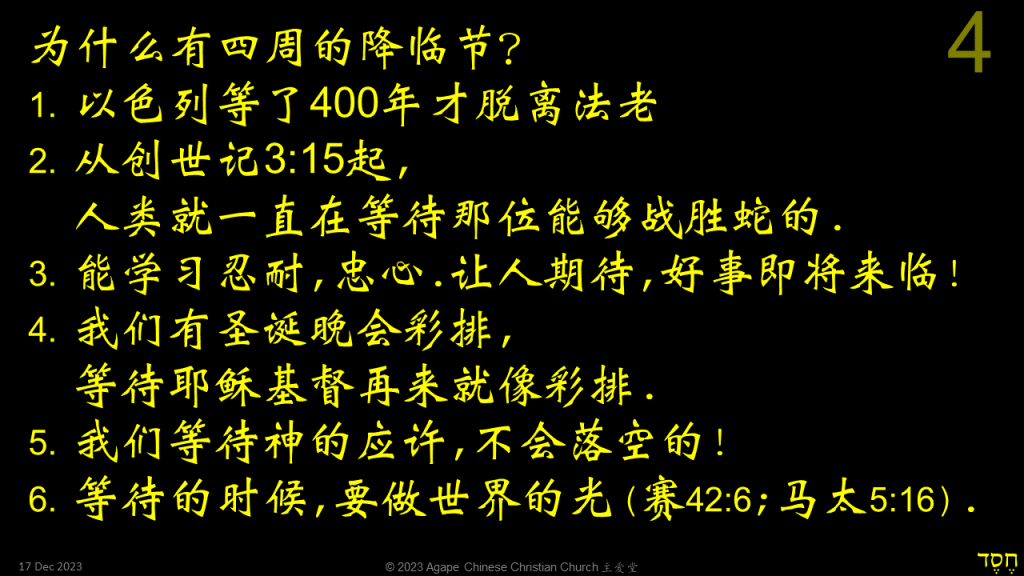
- Today is third week of Advent, after next Sun will be Christmas.
- Seems like a lot of waiting, and why 4 weeks of Advent?
- Israel waited 400 years to be free of Pharaoh.
- Since Gen 3:15 (5,000–6,000 years ago), humanity have been waiting for someone who can defeat the serpent.
- Waiting helps us to be patient, to be faithful. It builds up the anticipation, something good is coming!
- We have dress rehearsal for Christmas Pageant, this waiting is also a dress rehearsal for Christ’s 2nd coming. We long for that day to be here.
- We wait on God’s promise, which we know will always be realised.
Hook
Look at the 3 pictures. What do you think is the theme or topic?

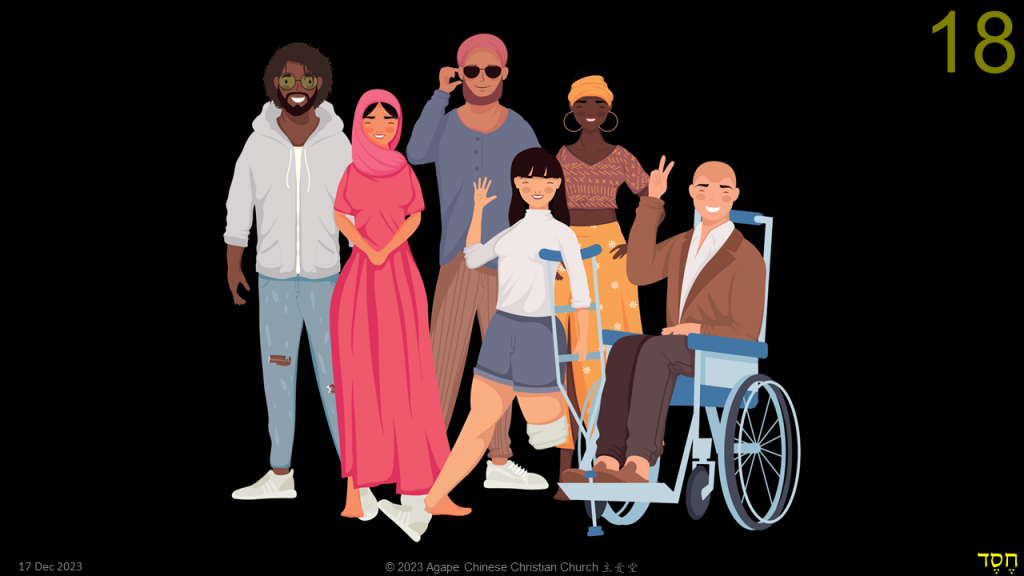
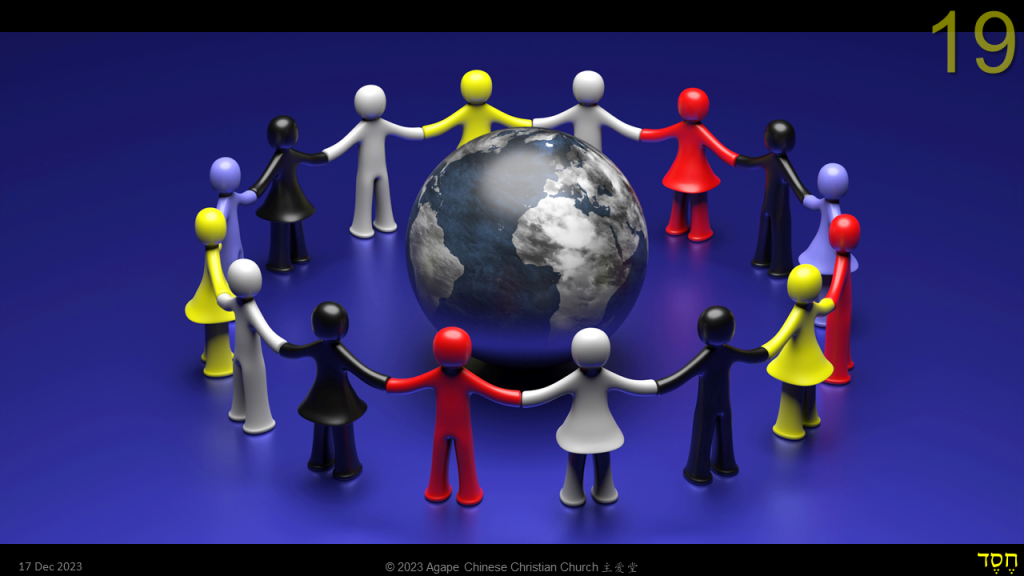
What do you think is the common theme or topic?
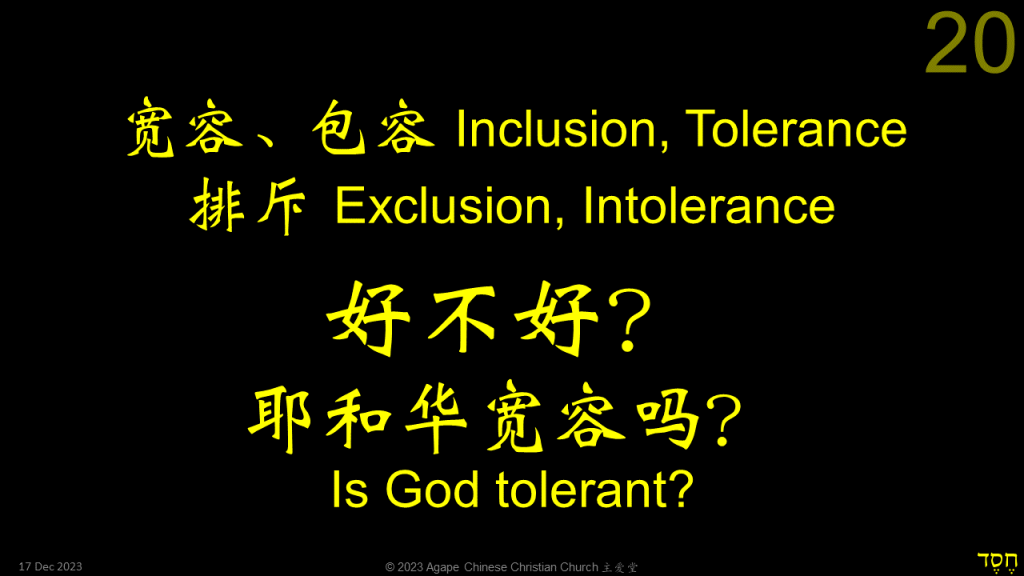
Theme is Inclusion, Tolerance.
Is it good to be inclusive? To be Tolerant?
Is God tolerant and inclusive? If so, how? If not, why not?
Passage
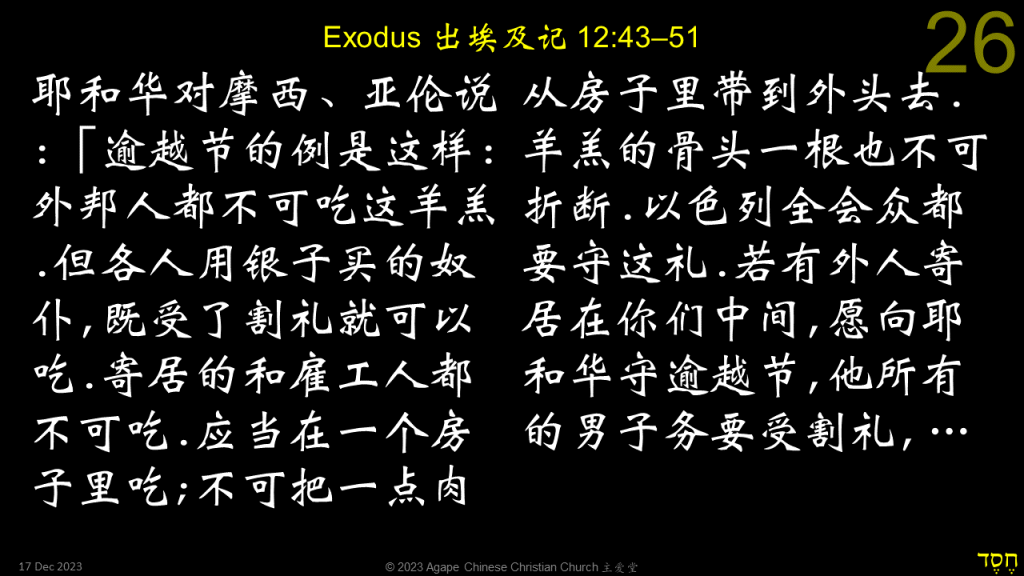

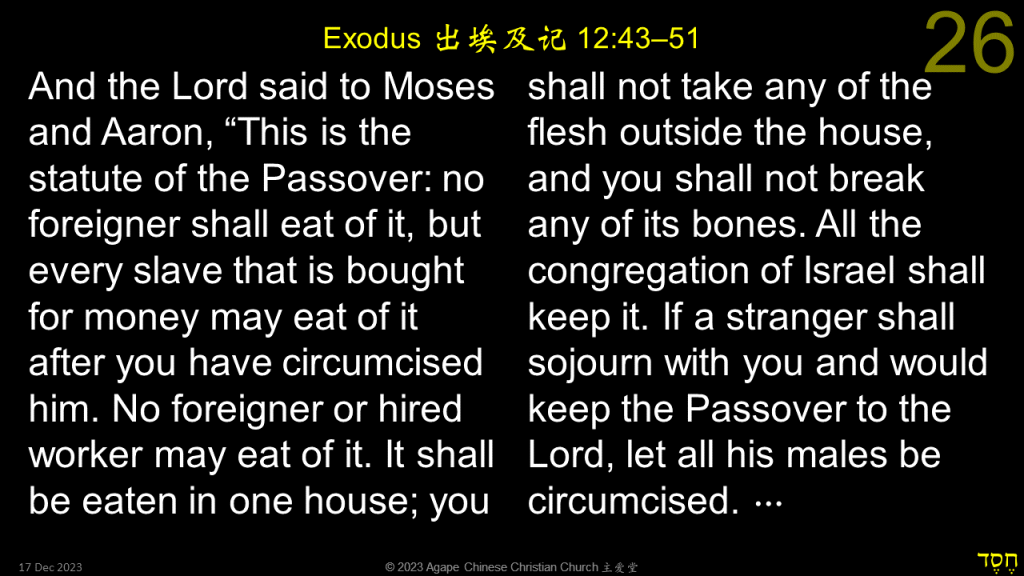
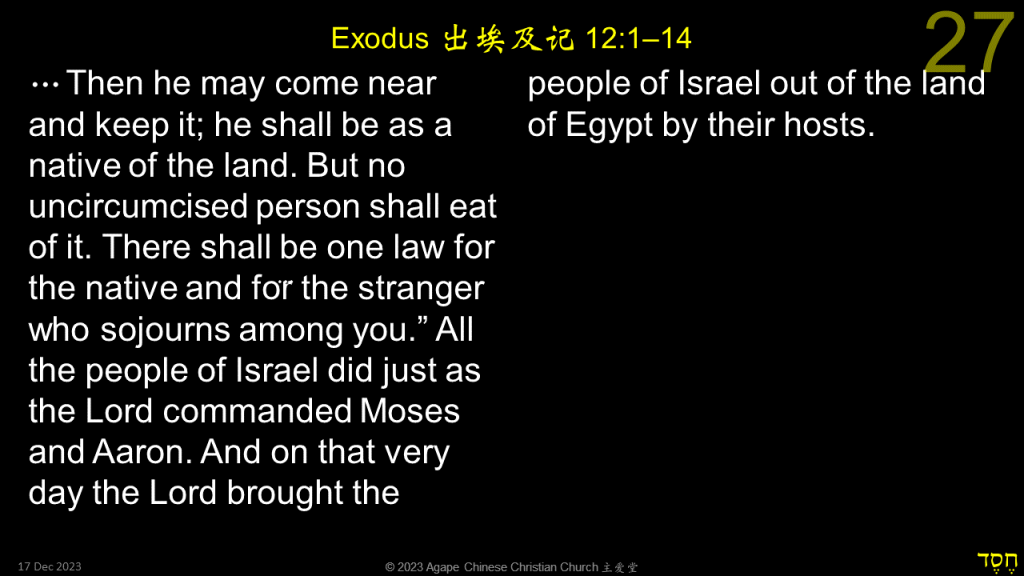
Outline
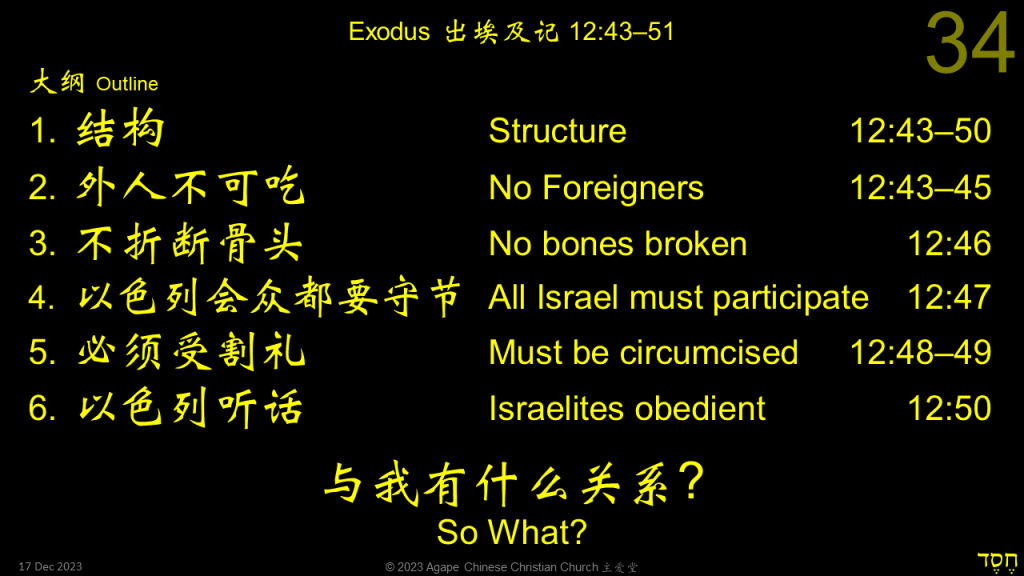
There are 6 sections today instead of the usual 5. Section 1 is about the structure of today’s passage.
Section 1
Structure
Can easily see two structures in the passage:
- A chiastic structure based on topic (Exo 12:42–51), as in Slide 36.
Click here for the original drawing in English. - A linear structure with 7 commands (Exo 12:43b–48) that all end in the word “it” (easiest to see it in Hebrew), as in slide 37.
Click here for the original drawing in English.
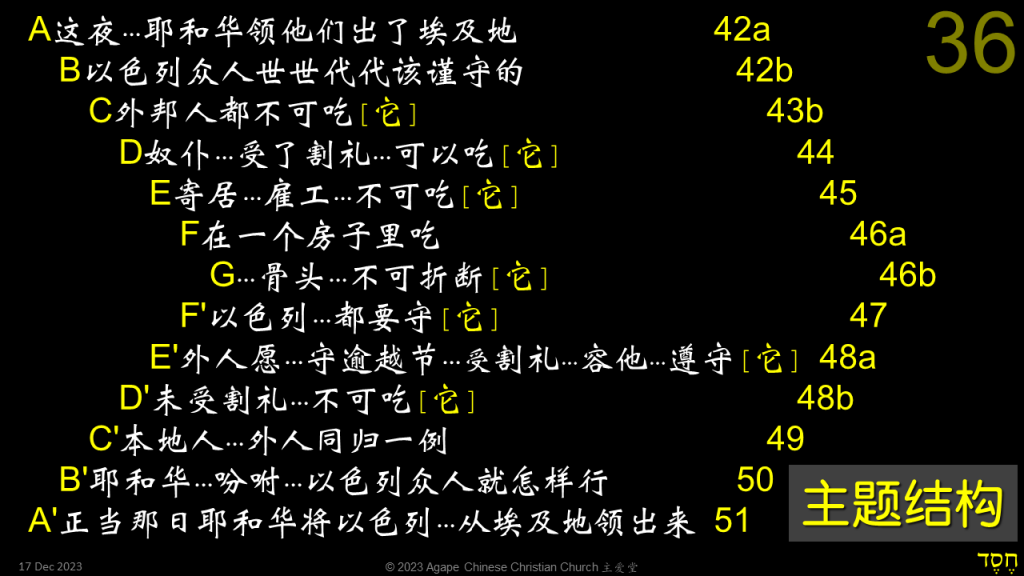
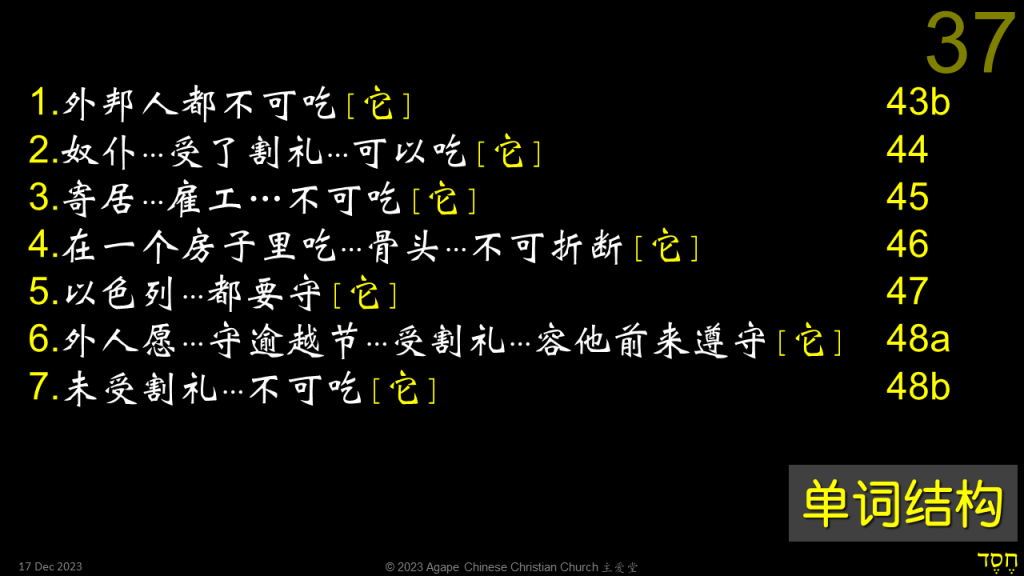
In both structures, the centre of the structure is “you shall not break any of its bones” (Exo 12:46b).
Does “no bones broken” sound familiar? Where have we heard it before?
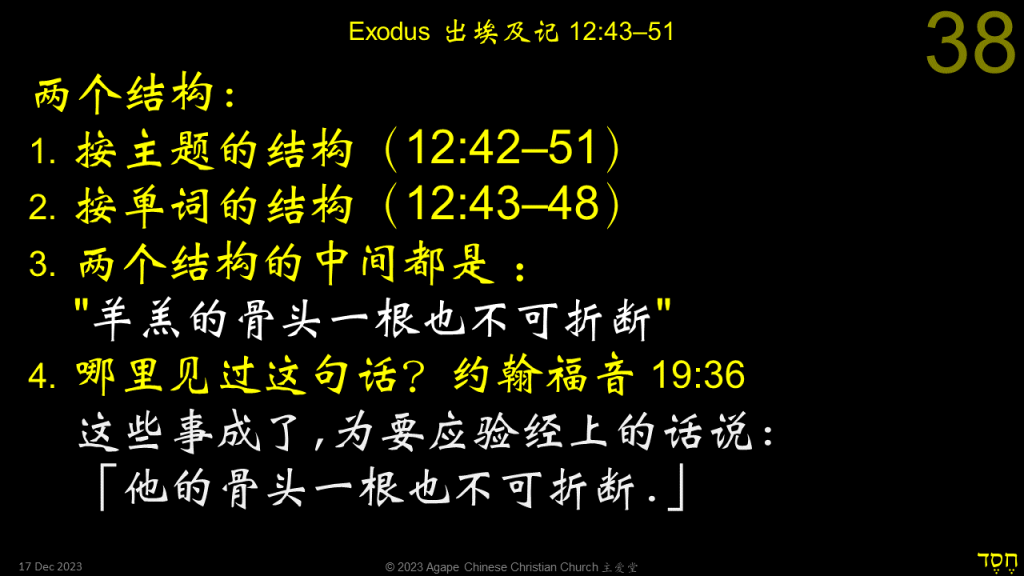
At the crucifixion of Jesus, he was already dead, so no bones were broken (unlike the other two who were crucified with him). See John 19:36:
John 19:36 ESV
For these things took place that the Scripture might be fulfilled: “Not one of his bones will be broken.”
Lessons

1. Today’s passage tells us who can, and who cannot, keep the Passover.
2. How the Passover lamb should be eaten.
Section 2
Passage
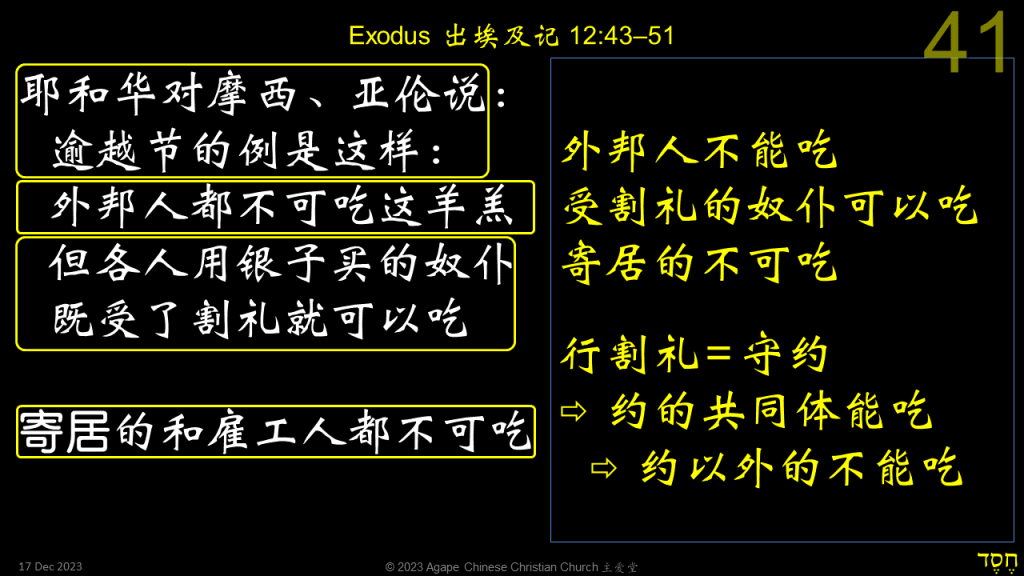
Foreigner can’t eat it
Circumcised slaves can eat it
Slaves that were bought (so belongs to you) and were circumcised can eat it.
Temporary residents can’t eat it
Temporary residents are not part of the community, so can’t eat it.
Sign of the covenant
Circumcision is the sign of the covenant (God made this covenant with Abraham back in Gen 17:9–10).
寄居 (Jìjū) is the word meaning “temporary resident,” someone who’s not part of the covenant community.
Funny note about 寄居: The pronunciation is identical to the way you say spider in Cantonese. Every time I read 寄居, spiders pop into my head!
雇工 (Gùgōng) means a hired worker. Again, not part of the covenant community.
Lessons
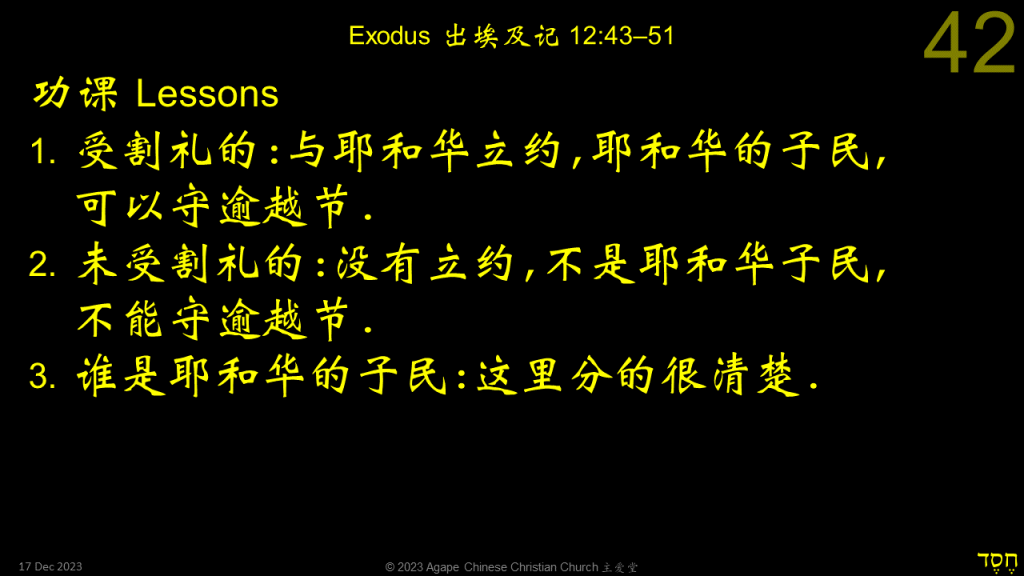
- Circumcised: They made a covenant with YHWH, they are YHWH’s people, so they can eat Passover.
- Uncircumcised: They have no covenant with YHWH, not YHWH’s people, so cannot eat Passover
- There’s a clear distinction as to who is or is not part of YHWH’s people.
Section 3
Passage
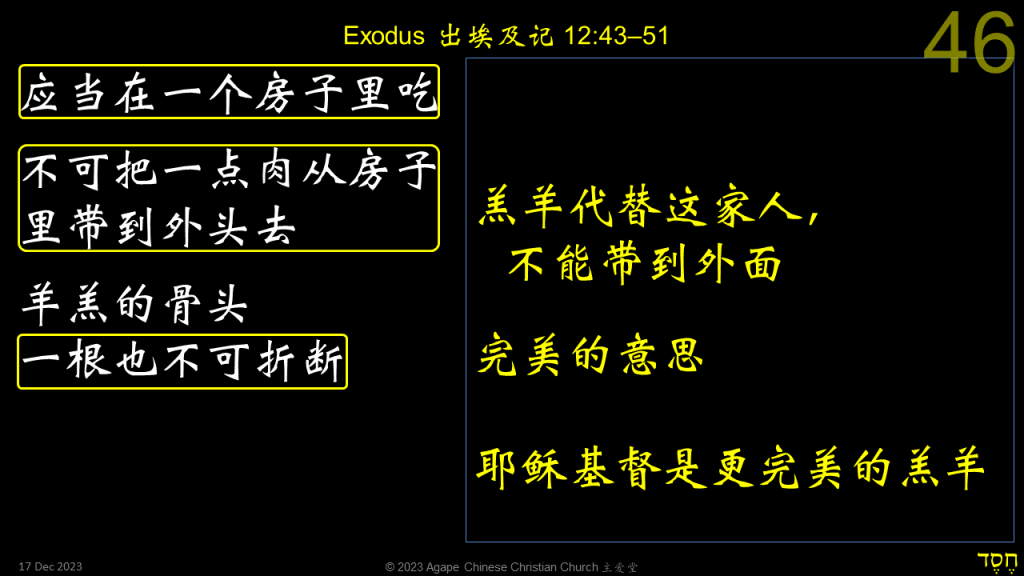
Passover lamb takes the place of the family
Cannot take the lamb outside the house.
No bones broken
The idea is completeness or perfection. The lamb must be “perfect” to die in the place of the family’s firstborn.
This verse (Exo 12:46b) is taken as the prophecy about Jesus’ crucifixion (John 19:36).
Rather than prophecy, it’s better to say it’s a “type” or “model” of the saviour and of God’s salvation.
The saviour must be perfect in order to die for other people’s sins.
Several Chinese terms that can translate “type” or “model” (this is from Psa 110:4), “after the order of Melchizedek” means “in the manner of Melchizedek” or “as a type of Melchizedek.”
模式 Móshì (CCB); 一系 Yī xì (TCV); 等次 Děng cì (CUV)
Section 4
Passage
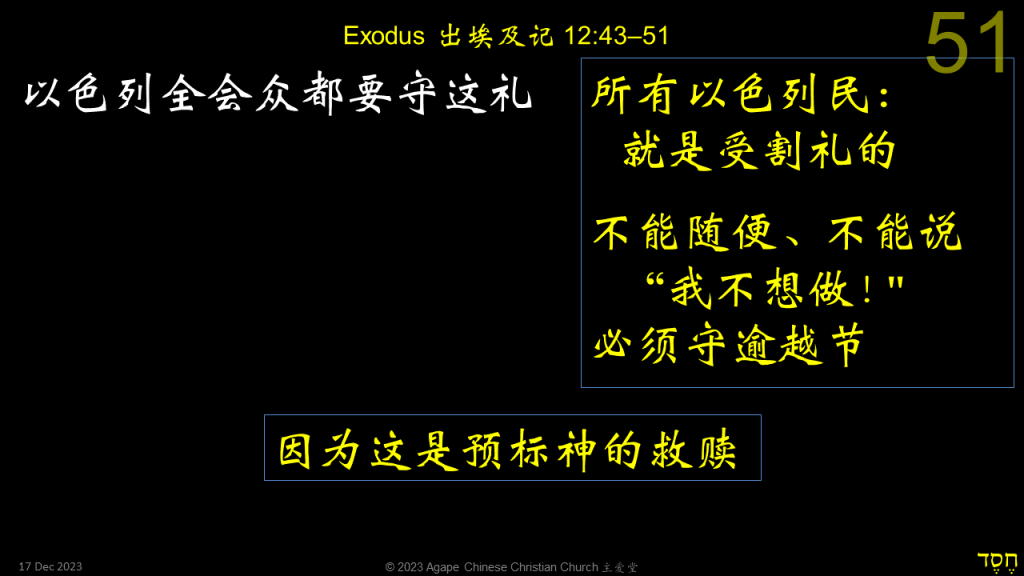
Everyone must participate
If you’re NOT of the covenant community, you cannot eat of the lamb.
If you ARE of the covenant community, you MUST participate.
No exceptions.
Like today. We’re part of the new covenant community, the church. We are asked to participate in worship, in sharing the gospel, etc. No exceptions.
We can’t say, “It’s not my problem!” or “I don’t care!”
Passover is a model of God’s salvation
It’s a like preview.
The lamb died, so the firstborn can live.
Jesus died in our place, so we don’t have to die for our sins.
Section 5
Passage

Being part of the community is the determining factor
This is from v. 48, “If a stranger should sojourn with you.” The 寄居 (Jìjū) here is not the same word as the earlier one in v. 45.
Here 寄居 (Jìjū) means “foreigner residing among you” or “resident foreigner who lives with you.” It’s like a permanent resident status (永久居民 Yǒngjiǔ jūmín).
Not about ethnic superiority, etc.
It’s not because Hebrews are better, or we Christians are better.
It’s about whether we’re in the community or not.
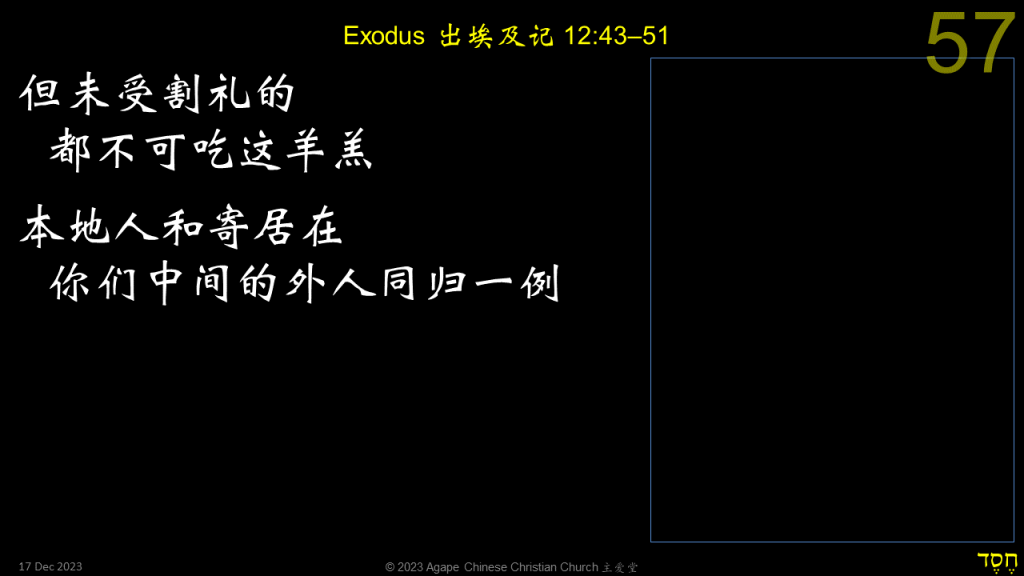
Resident foreigners treated same as Israelites
Resident foreigners are treated with the same rules as someone in the covenant community: i.e., circumcision.
Important thing is whether you’re part of the covenant community.
Lessons
Section 6

Israelites obeyed YHWH
This is good, because they rejected Moses and Aaron when they first told them about getting out of Egypt.
Unfortunately, this obedience won’t last long.
So What?

Passover is a type or model of God’s salvation
Every Israelite must participate
We who are God’s new covenant community, we also must participate in church.
Not part of covenant community, can’t eat the lamb
Same for us: not part of the covenant, cannot participate in Communion.
Back to the Hook question
Is God intolerant?
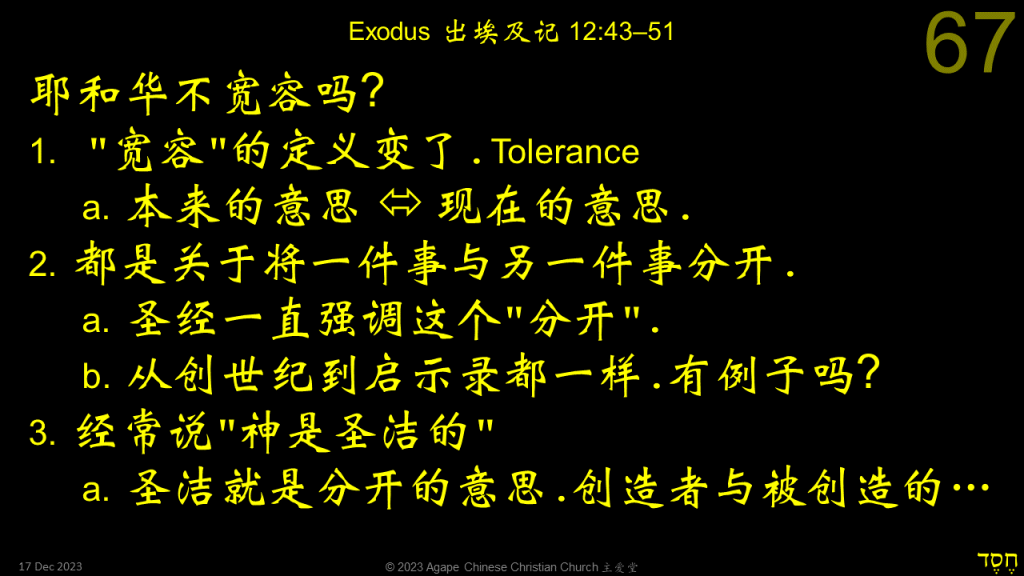
Is YHWH intorelant?
Meaning of tolerance has changed
Used to be that
It’s all about separation
Same for us: not part of the covenant, cannot participate in Communion.
All through the Bible, it’s about separation
From Genesis to Revelation. Can you give examples?
Separation is the idea at Creation
Gen 1:4 把光暗分开
Gen 1:6 将水分为上下
Gen 1:9 天下的水要聚在一处,使旱地露出来
Gen 1:11, 12, 21, 24 各从其类
Gen 1:28 要生养众多,遍满地面
The idea at the Exodus
At the covenant at Sinai
At the new covenant with Jesus, all the way to end of Bible in Revelation
There is always separation, always who is part of God’s kingdom, who is not.
We often say “God is holy”
“Holy” means separation. So God is “separate.”
The Creator is separate from his creation.

God is actually very tolerant
He gave us sinners a way to be with him.
Anyone who wants to, no matter your ethnicity, your past sins, you station in life, anyone can be part of the covenant community.
You just have to believe in God’s Passover lamb: Jesus Christ.

